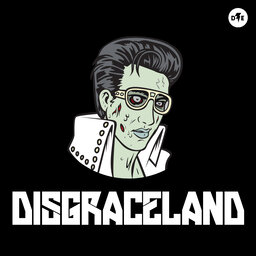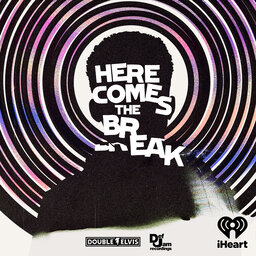Daniella Perkins (Janelle) and Bobby Cius (Marco) talk making the podcast from the actor’s perspective. Then writers Taylor Bettinson and Nakia Hill break down the themes of the show, and Taylor wants to know all about Nakia’s experience conducting the artist interviews that would become Mask On’s.
Executive Producer: Asante Blackk
Producer: Daniella Perkins
Starring: Asante Blackk and Daniella Perkins
Co-Starring: Bobby Cius, Rayme Cornell, Christopher V. Edwards and Taylor Bettinson
Written by: Taylor Bettinson and Nakia Hill
Directed By: Christopher V. Edwards
https://www.instagram.com/daniellaperkins/
https://www.instagram.com/bobby_cius/
https://www.instagram.com/herecomesthebreak/
https://www.instagram.com/doubleelvis/
https://twitter.com/doubleelvisfm
https://www.facebook.com/DoubleElvisProductions/
Learn more about your ad-choices at https://www.iheartpodcastnetwork.com
In 1 playlist(s)
Here Comes the Break
Here Comes the Break is a groundbreaking podcast sparking real conversations about creativity, menta…Social links
Follow podcast
Recent clips

Presenting Disgraceland Season 11 Trailer
02:20

Jake Brennan Talks Here Comes the Break and Soundtrack Release
08:04

Bonus #1: Generations
28:22
 Here Comes the Break
Here Comes the Break